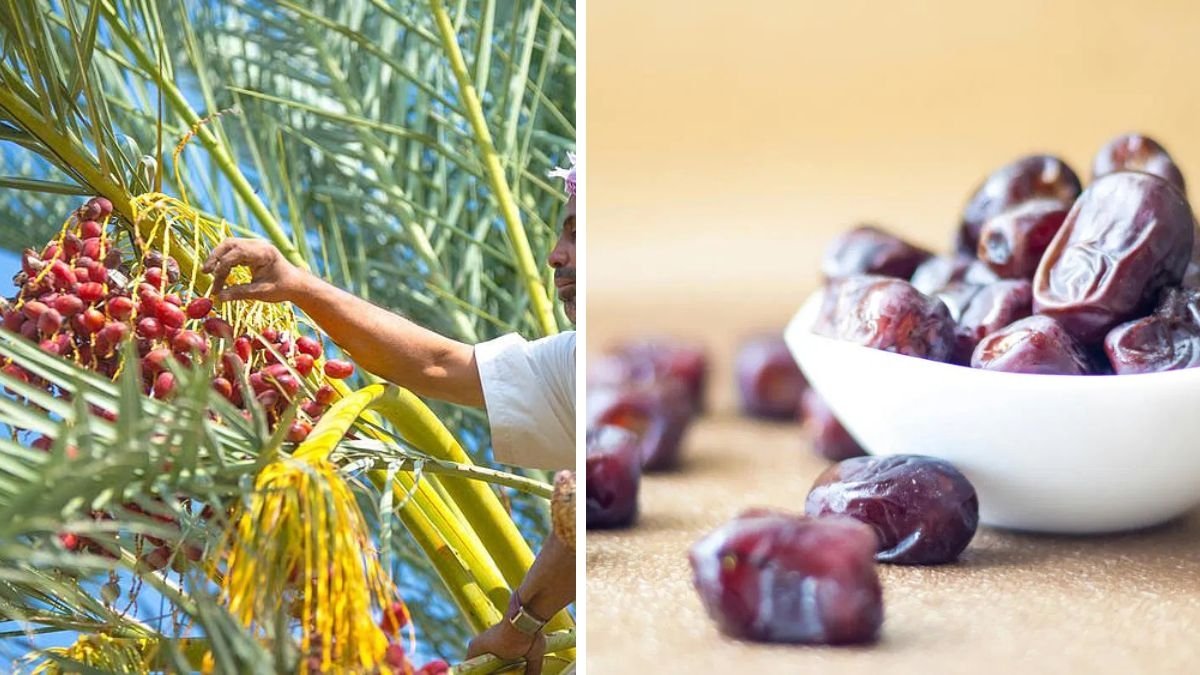Dates are more than just a sweet, chewy treat—they are a symbol of tradition, nutrition, and culture in many parts of the world. From their role in ancient trade routes to their importance in religious and festive occasions today, dates have a rich history spanning thousands of years.
But when it comes to modern-day production, which country leads the world in producing the most dates? In this comprehensive guide, we’ll explore the largest date-producing nations, what makes them successful, and why dates continue to thrive as a global commodity.
The Global Significance of Dates
Dates are the fruit of the date palm (Phoenix dactylifera), a resilient plant that grows in arid regions with minimal water. Known for their high sugar content, fiber, and essential nutrients, dates are a powerhouse of energy and health benefits.
Nutritional Benefits of Dates
- Rich in natural sugars for instant energy
- Packed with fiber to aid digestion
- Loaded with vitamins (B1, B2, B3, B5, A1) and minerals (magnesium, potassium, iron)
- Contains antioxidants that fight free radicals
- Helps regulate blood sugar levels in moderation
Because of these benefits, global demand for dates continues to rise each year, both for fresh consumption and for use in desserts, energy bars, and traditional recipes.
Which Country Produces the Most Dates?
Egypt — The World’s Largest Date Producer
Egypt is the undisputed leader in global date production. The country produces over 1.6 million tonnes of dates annually, which accounts for nearly 15–20% of the world’s total date supply.
Egyptian dates are famous for their large size, high sweetness, and quality, making them popular both locally and internationally.
Why Egypt Excels in Date Production
Egypt’s dominance in date production is due to several factors:
1. Ideal Climate
Date palms thrive in hot, arid climates with plenty of sunlight. Egypt’s Nile Valley offers:
- Long, hot summers
- Minimal rainfall
- Sandy, well-draining soils
This combination creates perfect conditions for healthy, high-yield date palms.
2. Extensive Plantations
Egypt has hundreds of thousands of hectares dedicated to date cultivation, with major production areas including:
- Sohag Governorate
- Qena Governorate
- Luxor
- Aswan
These regions have fertile soil along the Nile, irrigation systems, and decades of cultivation experience.
3. High-Quality Varieties
Egypt grows a wide range of date varieties, including:
- Siwi – Sweet, medium-sized dates
- Samany – Large and soft
- Hayany – Popular export variety
- Zaghloul – Soft, red, and aromatic
This diversity helps Egypt meet both domestic and export market demands.
4. Export Infrastructure
Egypt exports dates to more than 70 countries, including:
- Saudi Arabia
- UAE
- European Union
- United States
- Asia
With cold storage facilities, modern packaging, and shipping networks, Egypt ensures that its dates reach international markets fresh and high quality.
Other Major Date-Producing Countries
While Egypt leads the world, several other countries are also famous for large-scale date production.
Saudi Arabia
Saudi Arabia is the second-largest producer of dates globally.
- Produces around 1 million tonnes annually
- Known for high-quality varieties such as Ajwa, Sukkari, and Khalas
- Dates hold cultural and religious significance in Saudi society
- Exports to Asia, Europe, and North America
Saudi dates are often considered a premium product due to their rich taste and traditional heritage.
Iraq
Iraq has a long history of date cultivation, dating back thousands of years.
- Produces over 700,000 tonnes annually
- Famous varieties include Zahidi and Khalas
- Date palms are a vital part of Iraq’s agricultural economy
Although production has fluctuated due to political instability, Iraq remains a significant contributor to the global date market.
Iran
Iran is another key player in date production.
- Produces about 600,000 tonnes annually
- Known for soft, sweet varieties like Mazafati
- Dates are widely consumed domestically and exported worldwide
- Southern regions like Kerman and Hormozgan are top producers
Iranian dates are particularly popular in Asian markets.
United Arab Emirates
- Produces around 100,000–120,000 tonnes annually
- Known for premium varieties like Fardh, Khudri, and Shahani
- Dates are an essential part of Emirati culture and cuisine
- The UAE has invested in modern irrigation and plantation management
Tunisia
Tunisia may be smaller in total production, but its dates are renowned for quality.
- Produces around 120,000 tonnes annually
- Famous for Deglet Noor, known as the “queen of dates”
- Primarily exports to Europe
- Combines traditional cultivation methods with modern technology
Date Production Around the World (Approximate)
| Country | Annual Production (Tonnes) |
|---|---|
| Egypt | 1,600,000+ |
| Saudi Arabia | 1,000,000+ |
| Iraq | 700,000+ |
| Iran | 600,000+ |
| Tunisia | 120,000+ |
| UAE | 100,000+ |
| Algeria | 90,000+ |
| Pakistan | 60,000+ |
Why Date Cultivation Is Profitable
- High demand both locally and internationally
- Long lifespan: date palms can produce fruit for 60+ years
- Drought-tolerant once established
- Low maintenance compared to other fruit crops
- Multiple uses: fresh fruit, syrup, date sugar, and confectioneries
Farmers in Egypt, Saudi Arabia, and Iran often see dates as a high-return crop.
Tips for Successful Date Farming
- Select high-yield varieties suitable for your climate
- Prepare well-draining soil with proper irrigation
- Plant in full sunlight for maximum growth
- Regularly prune and maintain trees to encourage fruiting
- Monitor pests such as red palm weevil
- Harvest at the right time for optimal sweetness
Date Export Trends
- Global demand for dates is increasing due to health consciousness
- Organic and premium varieties are highly sought after
- Egypt dominates the export market, especially with Siwi and Zaghloul varieties
- Middle Eastern dates are exported widely to Europe, North America, and Asia
Fun Facts About Dates
- Dates have been cultivated for over 6,000 years
- They were a staple in ancient Egyptian diets
- Ajwa dates from Saudi Arabia are considered sacred in Islam
- Date palms can reach 30 meters in height and live over 100 years
Final Answer: Which Country Is the Largest Date Producer?
Egypt is the largest date producer in the world, producing over 1.6 million tonnes annually. Its ideal climate, vast plantations, high-quality varieties, and strong export network make it the undisputed leader in global date production.
Final Thoughts
Dates are more than just a sweet fruit—they are a vital part of global culture, history, and nutrition. While many countries produce high-quality dates, Egypt continues to lead the world in both quantity and consistency.
With rising global demand, countries like Saudi Arabia, Iran, and Iraq are expanding production, but for now, Egypt remains the heart of the world’s date industry.
Whether you enjoy dates fresh, in desserts, or as natural sweeteners, remember that you’re tasting a fruit that has nourished civilizations for thousands of years.




Leave A Comment